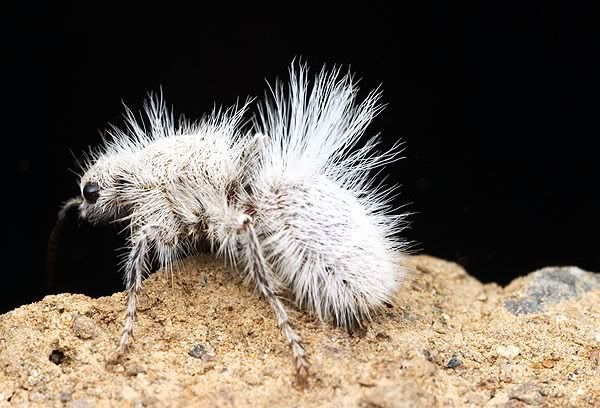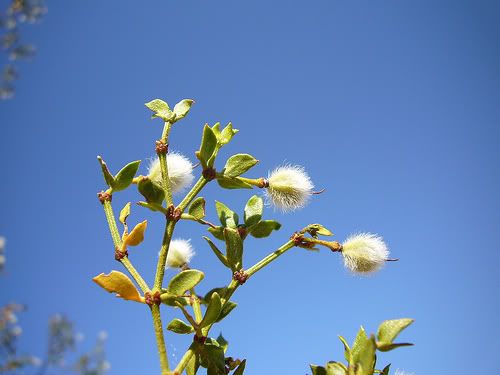Believe it or not, it's relatively easy to find them! Most popular retail and grocery stores in the United States have at least a small section dedicated to earth and animal-friendly products. However, a lot of the products--if not all of them--aren't actually certified organic. This means you're going to have to do some research. But if you live in or near a larger city, you may find private businesses wholeheartedly dedicated to the cause who would be happy to assit you with finding certified organic soaps and scrubs. Another alternative would be to buy online. A lot of the more established businesses sell online and will deliver directly to your door.
Why is it better to have certified organic products?
Uncertified "natural" products may or may not be all that natural at all. Marketers love buzz words and will use "all-natural" and "organic" in their advertising to try to get you to purchase their products. Believe it or not, marketers can call something "all-natural and organic" as long as they aren't lying about the product's purpose, that it contains some natural ingredients, and that it has been tested to be safe for use.
Unless the item you are purchasing says it is certified organic or has a certified organic logo, you cannot guarantee that the product has not been tested on animals nor has used animal products--even if it says it's "cruel free" and "not tested on animals." Certified organic guarantees that the product does not contain any synthetic chemicals. Since it is not required by the FDA to test organic ingredients, you can relax knowing that it has not been tested on animals.
Does this mean that all uncertified "natural" products are probably unsafe or tested on animals?
Absolutely not, but it does take a little bit more research to make sure. A lot of natural products are still in the process of becoming certified, or have other reasons for not meeting certification requirements that are unrelated to their ingredients or testing procedures.
How do I make sure that my product is safe and cruel free?
The first step would be looking at the ingredients list and verifying whether they are safe and natural or not. The following list was compiled by Adam Waters, founder of Natural Skincare Authority, a website dedicated to providing easy-to-understand knowledge about natural products. These are the top 10 toxic ingredients found in over 74% of all bath & body products.
- Mercury: Known human carcinogen.
- Lead Acetate: Known human carcinogen.
- Formaldehyde: Known human carcinogen
- Toluene: Reproductive/developmental toxin
- Petroleum Distillates: Possible human carcinogen
- Ethylacrylate: Possible human carcinogen
- Coal Tar: Known human carcinogen
- Dibutyl Phthalate: Reproductive/developmental toxin
- Potassium Dichromate: Possible human carcinogen
- 2-Bromo-2-Nitropropane-1,3-Diol: Forms carcinogens if mixed with nitrosating agents
Because they are toxic, this means that they had to be lawfully tested to guarantee that there wont be any immediate harmful effects. Prolonged use does not guarantee the product's safety. Unfortunately, these are not all of the toxic ingredients found in everyday care products. If you aren't sure about an ingredient, your best bet would be to look it up.
That seems like a lot of work. Do you have a list of products that are already known to be safe?
Yes I do! I have been conducting my own research over the past few weeks to find the best, least expensive, and easiest to find bath & body products. Though I cannot guarantee 100% safety, I can guarantee that based off of their ingredients labels, these products should not contain any dangerous chemicals and therefore do not test on animals.
Burt's Bees
Burt's Bees is probably the most well known and established natural product manufacturer. They are so huge now that I've even seen their products sold in gas stations and can be found virtually in any store which sells bath & body products. Certified natural by the Natural Products Association, they have a variety of merchandise including shampoos & conditioners, lotions, food scrubs, lip gloss, etc. They even have soaps for babies and individuals with sensitive skin. Additionally, they practice sustainable company habits and announced in July 2010 that they have achieved zero waste to landfill. If only we could all achieve this!
However, Burt's Bees isn't perfect. They use synthetic ingredients when there are no natural alternatives. They are honest about it, however, and provide a percentage label of how natural their product is, i.e. 98% natural. They are also not certified organic, nor are they vegan which means they do use some animal products in their ingredients such as beeswax, lanoline, royal jelly, and milk. My only concern is their use of carmine--an extract derived from the shells of the cochineal beetle. This is used to give their lip balms a reddish tint and is literally extracted by crushing dried up beetle shells. Yum!...not.
While you may have never heard of "him" (he used to be a him!), Dr. Bronner's has been around for over 150 years and passed down through five family generations. They have a good variety of liquid & bar soaps for your hair and body, as well as lip balm, baby soaps, and shaving cream (something that is much harder to find in a natural product). Dr. Bronner's is certified organic by the USDA National Organic Program as well as certified Fair Trade by the Institute for Marketecology (IMO). They wear their hearts--and their legal & company information--on their sleaves, and all of their merchandise is available for purchase online.
Unfortunately, their products tend to be incredibly elusive. This may or may not be their fault, but the places that I have found them--Ralph's and Target--tend to keep their soaps out of mind and out of sight. Additionally, I have only ever found their body washes and bar soaps. I didn't even know they had more than that until going to their website. Their packaging is also a tad too preachy even for my tastes. While that doesn't prevent me from purchasing good products, they may lose a lot of customers who don't want to feel as though they are being yelled at by their shampoo!
Unfortunately, their products tend to be incredibly elusive. This may or may not be their fault, but the places that I have found them--Ralph's and Target--tend to keep their soaps out of mind and out of sight. Additionally, I have only ever found their body washes and bar soaps. I didn't even know they had more than that until going to their website. Their packaging is also a tad too preachy even for my tastes. While that doesn't prevent me from purchasing good products, they may lose a lot of customers who don't want to feel as though they are being yelled at by their shampoo!
I can't really categorize J.R.Watkins as a bath & body company alone because they have an extensive list of products in so many different categories including hand & body creams, facials, lip balms, oils, hair care, dish soaps, furniture polish, all purpose cleaners, organic seasonings, vanilla extracts, recipes, pain relief medication, first aid, etc... the list goes on. I guess I would call them the Acme of natural products. J.R. Watkins is certified all natural by the Natural Products Association. Additionally, their herbs and spices are USDA certified organic. They also offer discounts for members of their Clear Conscious Club (free to join!), help to support over 30 non-profit organizations, use biodegradable packaging, soy-based inks, and practice strict company recycling programs. But like Dr. Bronner's, they are very hard to find in-store. Your best bet would be to buy online.
EcoTools
A new line of bath & beauty products released by the parent company Paris Presents, Inc., they produce exactly what it sounds like--EcoTools. These cosmetic brushes, loofahs, and other "ecotools" are made 98% to 100% from nature. But besides tools, they also have an incredibly delicious body butter (don't worry--I didn't actually eat it!), body sprays, facial scrubs, and more. Although EcoTools is not well established, I have seen their products being sold at larger chains like Ralph's, Wal*Mart, and Target so they should be easier to find. They are also doing their part by joining 1% For the Planet which donates 1% of their annual earnings to environmental organizations.
The iffy side is that I have not been able to verify if their parent company follows the same ecological and moral guidelines as their EcoTools line. They are also Made in China, which doesn't help. While this may be okay for some, there are many controversial reasons for not wanting to purchase products from China. Also some of their fragrances, particularly in their body sprays, are overwhelmingly strong and border on obnoxious.
Other natural or organic products:
Sadly, I haven't been able to try out all of the great stuff I found. I simply ran out of money! The following list are other companies that I did my best to verify were either natural, organic, or on their way to becoming one of the two. I encourage you all to try your best and switch to organic and all natural products for your health, your family's health, and the health of hundreds of thousands of adorable little rodents out there.
Sadly, I haven't been able to try out all of the great stuff I found. I simply ran out of money! The following list are other companies that I did my best to verify were either natural, organic, or on their way to becoming one of the two. I encourage you all to try your best and switch to organic and all natural products for your health, your family's health, and the health of hundreds of thousands of adorable little rodents out there.
- EO
- Un-pretroleum
- Sunshine Spa
- Mrs. Meyers
- Shikai
- ABRA Therapeutics
- Yes To Carrots
- Olivella
- Aztec Secret
--------------------------------------------------------------------------------------------
UPDATE 7/6/2011: Thanks to a blog post by Jem's Room which linked me to another blog post from GreenOptions.com, I have updated the above list of products by removing companies which are not natural nor organic despite labeling themselves as such. This post on GreenOptions.com lists Fake Organics, Fake Naturals, Real Organics, and Real Naturals based on their ingredients list on the products themselves. I encourage you to check out BOTH of their posts! *Please note that products on the list above that weren't listed at all on GreenOptions.com stayed where they are, but does not guarantee that they are truly natural and/or organic.




